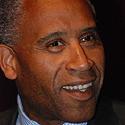
With a May General Election most likely the question that remains for black and minority ethnic voters is, which party is more likely to look after their interests?
Immigration, jobs, the economy, public services and crime are among the top concerns of most voters, but for black and minority ethnic voters while these issues are of equal concern; the rise of the far right and the continued alienation these voters feel from mainstream politics indicates that for many politics is still a predominately white arena.
According to an Electoral Commission report in 2005 there is still a huge gap between the voting levels of Black and minority ethnic communities (BME) in comparison to whites. The report found that a significant number of BME communities feel that political parties did not stand for the changes they would like to see.
Political parties unwilling to address racism in the employment market
One example is the employment market which has remained consistently racially discriminative against BME communities throughout Labour’s 13 year leadership of the country despite promises to tackle this issue.
In May 2009, The Trade Union Congress (TUC) 16th Black Workers Conference was held in Scarborough, where Leslie Manasseh, Chair of the 2007 Black Worker’s Conference expressed concerns about the plight of BME workers during the credit crunch.
Manasseh called for BME workers to organise by joining trade unions and becoming leading activists for racial equality in employment and within the workplace.
Manasseh said: “…the TUC published a report, ‘TEN YEARS ON’, which looked at what had been happening to Black Workers in Employment from 1997 – 2007. The report showed that whilst the employment gap between black and white workers had narrowed the unemployment rates in black communities were still double that of white workers…”.
Once in employment BME workers face racial barriers to job-related training, education and promotion, and because of racial discrimination in the employment sector BME workers are still disproportionately concentrated in the service sectors such as public services, retail, hospitality, restaurants, banking, finance and insurance.
It is in these sectors where the recession has hit the hardest, therefore hitting BME workers and communities in the worst way possible.
Manasseh mentioned how the TUC has fought for racial legislation to cover the private sector with no response from the government, he went as far as to say that “Too many politicians and policy makers and political commentators are happy to avoid the hard realities of race discrimination in the workplace…”
A Trades Union Congress (TUC) report on July 5 2005, titled ‘Fifty years to plug ethnic minority employment gap, says TUC’, revealed that it would take almost 50 years for the employment rate of black workers to be equal to those of the general white population.
According to a report by the former Commission for Racial Equality (CRE), titled ‘A lot done, a lot to do’ “Currently, 67% of people from ethnic minorities live in the 88 most deprived wards in England.”
Adding to this child poverty in ethnic communities are staggeringly high, for children of African origin it is (56%), Pakistani (60%) and Bangladeshi (72%), compared with a rate of 25% for white children.
The common root which links the employment disparities, poor housing and poverty within BME communities is racism and no political party to date have been bold enough to tackle this head on instead of using fancy but empty political slogans like ‘equality for all’.
Lack of BME MPs in parliament
Another example where BME communities feel alienated from the political process is the lack of Black and Asian MPs in parliament. As it stands there are only 15 BME MPs in this country.
Operation Black Vote (OBV) is an organisation which has focused exclusively on the Black democratic deficit in the UK and increasing the number of black voters and MPs since 1996. Its founder, Simon Woolley has argued that BME communities need to vote to challenge not only the rise of the far right in British politics but also to hold the political parties accountable for racial equality.
Political parties still have a long way to go in order to convince BME communities that British politics is racially inclusive. All have been guilty at one time or another of using the language of the far right concerning immigration.
In June last year the Conservative Party was shamed as young, Tory students from the Oxford University Conservative Association (OUCA) were at the centre of a race row after they told racist jokes which included stereotyping black people as criminals and lynching (Chris Irvine: Daily Telegraph: June 2009).
BME communities can bargain for change with votes
Despite the obvious work that needs to be done OBV has a strong message which is that BME communities hold enough voting power to decide certain seats during an election.
Research carried out by OBV suggests that in areas such as Kingston and Surbiton, Milton Keynes NE, Harrow West, Northampton South, Enfield Southgate and Bradford West the BME population in these areas could be decisive for political parties if these communities would register and vote.
The parents of many second generation BME children fought against racism and performed menial labour which whites refused to take for decades to provide a better life for their children. They have paid into the system and earned themselves a right to shape the politics of this country. What more then for those of us who were born in this country? Change will only come if each and every one of us stand up and be counted on election day and begin to take an interest in how this country is run.
Consider this? A black Prime Minister will never be a reality in this country unless BME communities are willing to vote and support other BME MPs.
Subscribe to our newsletter!
Further research:
http://www.electoralcommission.org.uk/news-and-media/news-releases-old/electoral-commission-media-centre/news-releases-campaigns/campaign-to-increase-electoral-registration-amongst-black-and-minority-ethnic-communities
http://www.tuc.org.uk/equality/tuc-16414-f0.cfm
http://www.tuc.org.uk/equality/tuc-16413-f0.cfm
http://www.tuc.org.uk/equality/tuc-10161-f0.cfm
http://www.obv.org.uk/index.php?option=com_content&task=view&id=190&Itemid=127
